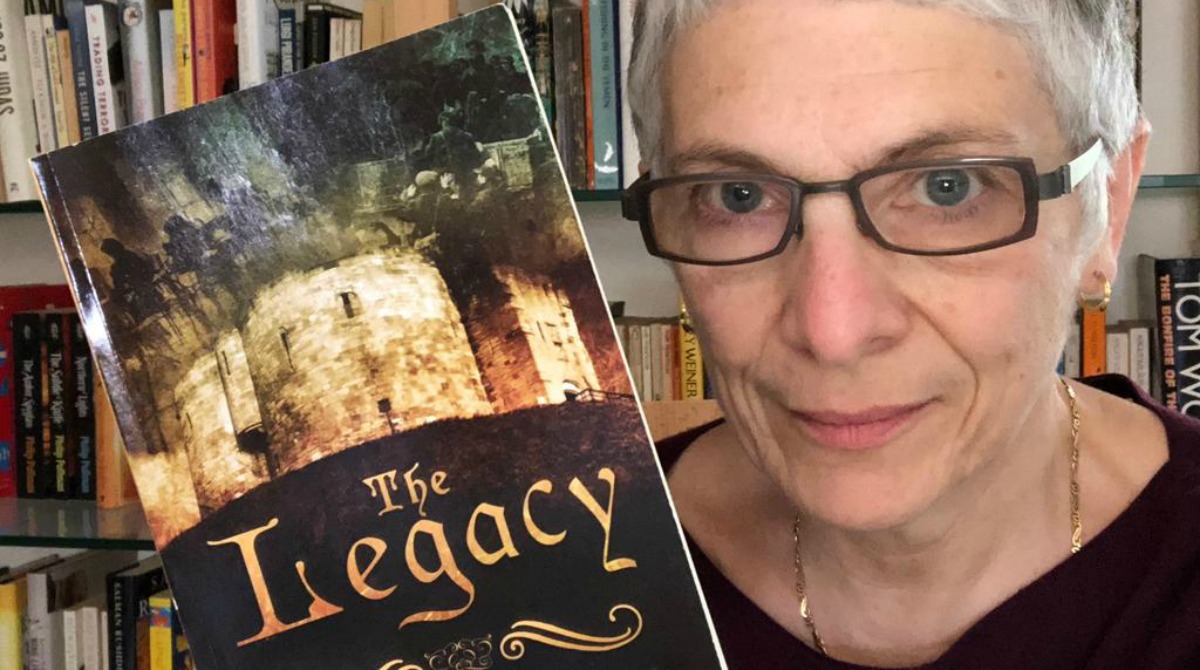The Legacy: an interview about my novel
The New York Jewish event guide Blueprint has published an email interview with me about my novel, The Legacy. You can access it here or read the text of my Q&A with Blueprint editor Josh Weiss below.
New York Blueprint: Just to start off, can you talk a little bit about where the idea for “The Legacy” came from?
Melanie Phillips: A number of ideas gradually came together. I think a major prompt was my father’s death in 1998. That left me with a strong sense of “unfinished business”, not the least of which was that there were unexplained mysteries about my family background and early life. It’s often difficult to mourn and grieve properly in those circumstances, and so an important part of the novel was the exploration of that process and the attempt to bring about some kind of resolution.
Some years previously, I had come across someone who had stumbled upon a medieval manuscript and that experience had lodged in my mind. I also read a book which related a particularly shocking story about Holocaust Europe and which made an enormous impression on me. Once I had written my own “medieval manuscript” for the novel, the rest of the story, including the mystery that it represents and the attempt to unravel it, gradually fell into place. And it became obvious to me that the journey being traveled by my central character, Russell, would take him into the territory I know so well: the persistent antisemitism in Britain and the deep ambivalence and discomfort of British Jews with their identity.
NYB: You’ve written several other books. Is there a piece of writing advice you’ve learned over the years?
MP: I have written several other books, but this is my first work of fiction and I was daunted at the prospect; it seemed a very different and more exacting challenge. The best advice is to put all that out of your mind and just start writing. Don’t think about the Everest of words you have to scale. Don’t measure every paragraph by some unreachable standard of literary excellence. Just get the words down on the page – because you can always change them! – and keep going.
NYB: What, in your opinion, was the most difficult part about writing this particular story?
MP: I had set myself the difficult challenge of writing about different eras – medieval England, Holocaust Europe, contemporary Britain and Israel. I therefore, had to think myself into different voices and mindsets to bring all these characters equally to life.
NYB: I’m curious why you decided to make the character of Russell Woolfe a TV producer?
MP: Russell didn’t start out as a TV producer but as a university lecturer. However, as the story of the manuscript took off the plot started to go down a cul-de-sac. I realized that it would make more sense and the plot flow more naturally if Russell was a TV documentary-maker instead. Plus that’s a world I know rather well.
NYB: The book covers a lot of historical ground. What kind of research did you have to do before writing anything?
MP: I did a great deal of research for this novel. Although it is a work of fiction, there are two incidents central to the plot which actually took place. I was anxious to represent these as accurately and as fairly as I could. As I have already said, I had previously read a book about one of these incidents. But on the daily life of Jews in medieval times, I had to do a lot of digging because sources were few and far between.
NYB: What do you hope readers get out of the book?
MP: I hope Jewish readers recognize their world in it and identify with the emotions and experiences of at least some of the characters. I hope non-Jewish readers learn much about Jews and Judaism, both today and in the past – the beauty and resilience of Jewish experience, as well as the never-ending obscenity and ultimate mystery of antisemitism.
I wanted to prise open the stereotypes and look at what motivates people to behave in certain ways – to get under the skin of both the antisemite and the Jew who despises the Jewish part of himself. I wanted to show that we all have the power to change and to grow and that we all need to know what we are, to anchor ourselves in a cultural identity and to feel we belong.
And I wanted to show that things are often not what they seem to be, that to avoid pain we sometimes live in a world of fantasy including denying our identity; but history lays claim to us regardless, and in one way or another we need to make our peace with it.
I have been enormously touched by people who have read “The Legacy” and who tell me how strongly they identified with it, how they laughed and cried over it and how they couldn’t stop turning the pages. I can’t hope for any better reaction from reading my novel.

